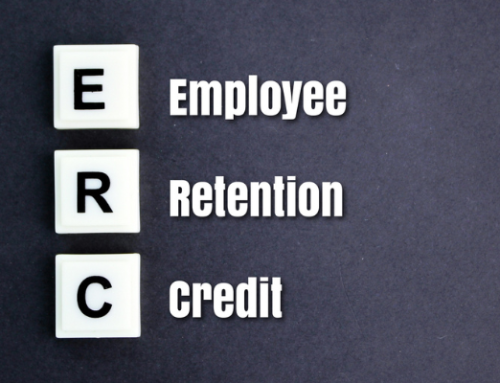Key points covered in this article:
- Seller financing helps franchise owners bridge the gap between traditional financing and other deal types. Deal structure can vary, and thorough due diligence should still be conducted to vet potential buyers.
- There are tax and financial considerations in seller financing, ranging from the tax treatment of installment sales to the impact of interest rates.
- Market conditions can also impact seller financing deals, like foot traffic, geographic footprint, and rent.
Seller financing is often an underutilized option that can help franchise business owners initiate new ventures or expand existing operations. Instead of relying solely on banks or traditional lenders, buyers and sellers can structure a deal in which the seller acts as the lender. This approach can accommodate more prospective buyers, enable higher sales prices, and expedite transactions. However, it also involves unique considerations regarding risk, due diligence, and the terms of repayment.
In many business sectors, seller financing is increasingly common. Buyers get greater flexibility when they lack significant capital or are facing tight credit markets, while sellers can potentially command higher sales prices and add interest income to their returns. The idea can be especially appealing for franchise businesses, where start-up costs, royalty fees, and real estate expenses in prime locations can create unique financing needs.
Seller Financing: What It Is, Why Consider it, and Key Differences from Other Deal Types
Seller financing refers to an arrangement where the seller of a business agrees to accept part (or sometimes all) of the payment for their company in installments over time rather than one lump sum at closing. It involves a contractual note—often called a promissory note—laying out the repayment schedule and interest terms, just like a bank loan would. The buyer typically makes a down payment and follows a set schedule to pay off the balance, including interest.
This differs from an all-cash deal, where the seller walks away from the closing table with the entire purchase price. It also stands apart from conventional loans, where a bank or other financial institution underwrites the transaction. In today’s environment, both small and mid-sized business transactions frequently include some level of seller financing.
Restaurant franchises, for instance, often combine bank loans (perhaps from the Small Business Administration, if applicable) with seller financing to reach the total amount needed for acquisitions, remodels, or expansions.
One of the primary reasons that a franchise seller would gravitate towards seller financing – instead of a cash deal – is to attract more potential buyers or because banks are strict on lending requirements. In the restaurant franchise sector, property expenses and franchise fees can be quite high, making it challenging for some buyers to secure sufficient capital outright. A willingness to offer financing demonstrates the seller’s confidence in the long-term viability of the franchise location or concept.
When Should Seller Financing Be Combined with Other Deal Types?
Seller financing rarely covers the full transaction price; it usually closes the gap between the down payment and a more conventional loan. Many buyers may pursue a small business loan or a traditional bank loan for a portion, while the seller finances the remainder. Others tap into personal connections, seeking loans from friends or family to reduce reliance on institutional lenders.
Some buyers use alternative strategies like Rollovers as Business Startups (ROBS), where they convert retirement funds into investment capital for the business without facing early withdrawal penalties.
When combined with seller financing, these methods allow buyers to step into a franchise with minimal cash out of pocket and limited bank debt. For sellers, it means more certainty that the buyer can close on the purchase—and remain financially stable in the crucial early period of ownership.
What are the Benefits of Seller Financing for Franchise Owners?
Despite the advantages of all-cash, upfront payments for a business, offering financing can produce several advantages, especially when selling a franchise.
- Attract a larger pool of prospective buyers.
- By effectively “acting like a bank,” the seller lowers the initial cash hurdle that buyers need to clear. In an industry like food service, where competition can be fierce, this approach significantly boosts the odds of a successful deal. Sellers who demonstrate confidence in their franchise’s performance provide reassurance that the franchise itself will continue to thrive under new ownership.
- Many sellers can realize higher overall proceeds.
- When financing is involved, buyers often consider the total long-term health of the business instead of weighing the immediate out-of-pocket investment. As a result, if the projections for revenue and profitability look good—especially in a recognized brand setting—the business may command a premium price.
- There can be favorable tax implications.
- Spreading out payments instead of collecting them all in a single year may alleviate the risk of being pushed into a higher tax bracket. Additionally, interest income adds another revenue stream over time. This benefit can be particularly attractive for individuals transitioning into retirement or exploring new business opportunities yet wanting a steady income from the sale.
- Seller-financed deals sometimes move through the due diligence stage faster.
- Buyers gain comfort when they see the seller retain a financial stake, because it signals that the seller genuinely believes in the franchise’s continued success. This can encourage more transparent and cooperative negotiations, resulting in a smoother process.
Risks and Challenges of Seller Financing
Seller financing is not without potential risks—and both parties should be aware of them.
The most apparent concern is default risk. If the buyer struggles to run the franchise effectively or fails to generate enough revenue to repay the loan, the seller’s installment income stream could be interrupted. For sellers, it’s important to have protective measures in place, such as personal guarantees from the buyer, collateral agreements, or a security interest in the business assets so they have recourse if payments cease.
Another critical factor is delayed access to capital. Sellers, especially those hoping to invest in another project or who need funds to settle business debts, might find it hard to wait several years for the sale proceeds. In franchise industries, this could mean missing out on a new growth opportunity or an additional concept expansion. If a seller cannot afford to tie up liquidity, seller financing might not be the right choice—or at least not at a large percentage of the deal.
Finally, there is often ongoing involvement with the business. Some sellers prefer a clean break, but if they’re offering financing, they typically want to ensure the buyer takes care of the enterprise so that revenue continues to be adequate to repay the remainder. This can sometimes feel intrusive to the new owner, so clear communication about roles and responsibilities is essential.
Structuring a Seller Financing Deal
The structure of a seller-financed agreement can vary widely depending on the size of the deal, the parties’ appetites for risk, and the nature of the franchise. In general, the deal centers on a promissory note outlining the repayment schedule, interest rate, and default provisions. Interest rates can sit between 6% and 10%, and repayment periods could run anywhere from five to ten years. Sometimes, buyers and sellers agree on a balloon payment at the end of the term—meaning the buyer makes smaller regular payments until a lump sum comes due.
Down payments typically range from 10% to 25% of the purchase price, although in some cases it can be higher. For example, a buyer without a strong managerial track record might have to offer only a modest down payment if they bring in strong collateral, or a more experienced buyer might negotiate lower interest or a smaller down. Every situation is unique, so clarity and fairness on both sides are vital. In the restaurant franchise sector, it’s fairly common to find provisions addressing seasonal fluctuations or the ramp-up period for a recently re-branded or remodeled location.
Legal considerations are also important and should be reviewed with an attorney. Areas to address include how the purchase agreement spells out the assets included in the sale, responsibilities the buyer assumes (such as lease or supply contracts), and the contingencies for default. Typically, a security interest would allow the seller to recover the business or other specified assets if the buyer ceases payment. The security interest provides safety for the seller and ensures the success of the transaction is a shared responsibility.
Conducting Due Diligence on Potential Buyers
Taking the buyer’s word as a contract is inherently risky. In many ways, a seller needs to conduct the same underwriting practices a bank would. A thorough review of the buyer’s credit history, relevant industry experience, and business plan is paramount.
A restaurant franchise can be challenging to operate successfully, so checking that the prospective owner has relevant hospitality or operations experience is prudent.
This might include verifying the buyer’s track record in running or managing other franchises. The buyer should also have enough working capital to sustain the franchise beyond the first few months—particularly as staffing and inventory expenses can be high in some segments, such as quick-service or sit-down restaurants.
Beyond the finances, cultural fit matters. If the buyer’s plans for the franchise differ dramatically from the seller’s vision or conflict with franchise brand guidelines, it can create friction. A franchisor may also impose its own requirements regarding new owners, so verifying that the buyer meets all franchisor qualifications will help avoid complications post-sale.
Tax and Financial Implications of Seller Financing
One of the significant tax benefits of a seller-financed sale is the potential for an installment sale treatment. Instead of receiving a lump sum that occurs with an all-cash sale, the seller receives smaller payments across multiple years, which may reduce tax liability in any one tax year. It also spreads out the moment of taxation, potentially lowering the seller’s overall tax burden.
However, interest rates on seller financing can fluctuate with market conditions (and each party’s relative bargaining position), so that interest income might surpass or lag behind alternative investment opportunities. Because of these nuances, tax planning is critical. Timing matters, especially for sellers nearing retirement, as their tax bracket could change over the repayment period. Consulting with a CPA or financial advisor helps ensure that negotiations around the deal structure align with potential scenarios for both business and personal finance.
When Seller Financing Makes Sense
For sellers, it mostly comes down to how quickly they need the sale proceeds and how comfortable they are taking on repayment risk. If they are open to collecting payments gradually, can vet the buyer carefully, and have faith that their franchise operation is resilient, seller financing may be beneficial.
Prospective buyers who have industry experience or who are already franchisees elsewhere may find the structure especially appealing. It combines the ability to enter a proven brand system with minimized immediate capital needs. Especially when bank lending is tightened and/or interest rates are high, a seller-financed deal can mean the difference between launching or never opening the doors at all.
Regional market conditions can further influence these decisions.
In states like Maryland, North Carolina, and Virginia, where chain restaurant presence is substantial, a buyer might perceive strong potential for growth if the location is in a high-traffic area. At the same time, rent in those areas may be high and the daily operating costs can fluctuate with labor and supply expenses.
Recent data shows that North Carolina ranks seventh in the country for total chain restaurant establishments, and Virginia eleventh, suggesting robust competition and opportunity in these collections of markets. Despite sizable footprints, many restaurants still operate on thin margins. Seller financing can help would-be owner-operators get a foothold, but they will need a solid plan for handling franchise royalties and rent obligations (IBISWorld, 2025).
Should Franchise Owners Pursue Seller Financing?
Seller financing offers compelling benefits to both parties in a franchise transaction while alleviating some of the barriers that can stall or derail all-cash or bank-financed deals. Sellers can spread out their tax obligation and often command higher prices, while buyers can preserve working capital for early-stage operating and expansion needs. That said, the arrangement requires a high level of trust, rigorous vetting, and well-defined legal provisions.
Ultimately, success hinges on careful planning and alignment of expectations. Franchise owners, or anyone anticipating a sale or purchase, should weigh factors like local market performance, brand guidelines, interest rates, and personal financial goals. When done properly—especially with guidance from advisors versed in tax, valuation, and other requirements—seller financing can serve as a dynamic catalyst for growth or a smooth exit.
For more information about seller financing for franchises, contact PBMares Tax Partner Charles Dean Smith.





